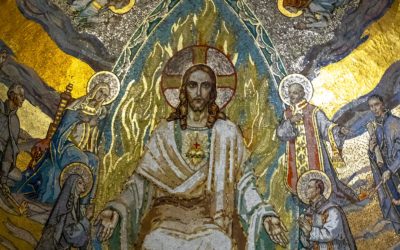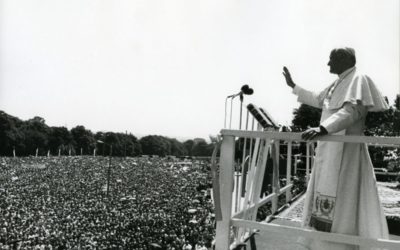INTRODUCTION “Breath of God” at Priory of the Holy Spirit, Oxford, for Pentecost 2021 This homily comes from the hand of the former Master of the Order of Preachers, the Dominican Friar, Fr. Timothy Radcliffe OP. With a simplicity style, Fr. Timothy emulates the...
Catholic Preaching
Discerning the Signs of the Times
Catholic sermons seek to break open the Word that we might better hear the God who speaks to us. Catholic preaching is fundamentally oriented toward encounter with the living Lord, and is liturgical in context, apostolic in origin, the subject of historical development, and, crucially, transformative in effect.
The sermon’s setting within the Eucharist is both christological and scriptural. Following their encounter with the risen Christ on the road to Emmaus, the two disciples say, “Did not our hearts burn within us while he talked to us on the road, while he opened to us the Scriptures?” This brief reflection encapsulates the very essence of the sermon’s purpose. It was followed by the “breaking of the bread” in which they recognized the risen Lord in their midst. This bringing together of Word and Eucharist provides the basic model of the Mass and is evident in the earliest accounts of Christian worship. In the second century, for example, St. Justin Martyr described the Eucharist as follows: “On the day called Sunday, all assembled in the same place, where the memorials of the Apostles and Prophets were read . . . and when the reader has finished, the bishop delivers a sermon.”
Show More...
Indeed, Catholics share with Orthodox Christians the view that preaching is a primary responsibility of the apostolic teaching office, which the bishops of the early church inherited from the apostles. The Second Vatican Council emphasized this continuity of tradition, which “was to be preserved by an unending succession of preachers until the end of time.” Thus we have the basis of an authoritative teaching office, one that belongs to the bishops, who proclaim the faith of the church in opening her Scriptures during the liturgy. Anyone else, therefore, who preaches authoritatively does so only to the extent that they share in the bishops’ ministry.
Historically, Latin-rite Catholics are heirs to the quiet revolution in preaching that took place in the thirteenth century, when the popes licensed first St. Francis and his friars to preach on Christian morals, and second St. Dominic and his Order of Preachers to preach the fullness of the Catholic faith, both morals and doctrine. The latter development presupposed the necessary study to expound the faith and defend it from objections so that preaching was, in the words of St. Thomas Aquinas, a passing on of the fruits of contemplation. Mendicant preaching found expression beyond the pulpit as the friars were also authorized to preach in town piazzas and at university lecterns.
Sermons should exhort interior transformation by the grace of God, a transformation that, with the help of the Holy Spirit and the communion of saints, will manifest exteriorly over time. In the medieval period, homilies helped prepare people to go to confession, enjoining a sacramental form of repentance. A similar appeal was also seen later in parish missions of the nineteenth century, which promoted confession and a conversion of life more widely.
A vital part of this transformation consists in following our Lord’s command to love our neighbor, a love expressed primarily in a concern for the poor. It is a source of great shame and reproach that Catholic preaching has sometimes failed in this respect and the authority of the pulpit has even been abused to wrongly incite violence, excuse the oppressor, and condemn the innocent. No preacher is insulated from sin. At it finest, however, Catholic preaching can be credited in the genesis of Western institutions of health care, education, economic relief, and other vehicles of social good that we take for granted today. The preaching of charity can be found in St. Augustine’s sermons, for example, a quarter of which mention almsgiving. Indeed, comparable themes of social justice can be found in the homilies and letters of recent popes, which form the basis of Catholic social teaching and which inspire much Christian political action at local, national, and international levels.
Ultimately, the church preaches Christ crucified and risen: the way, the truth, and the life.












